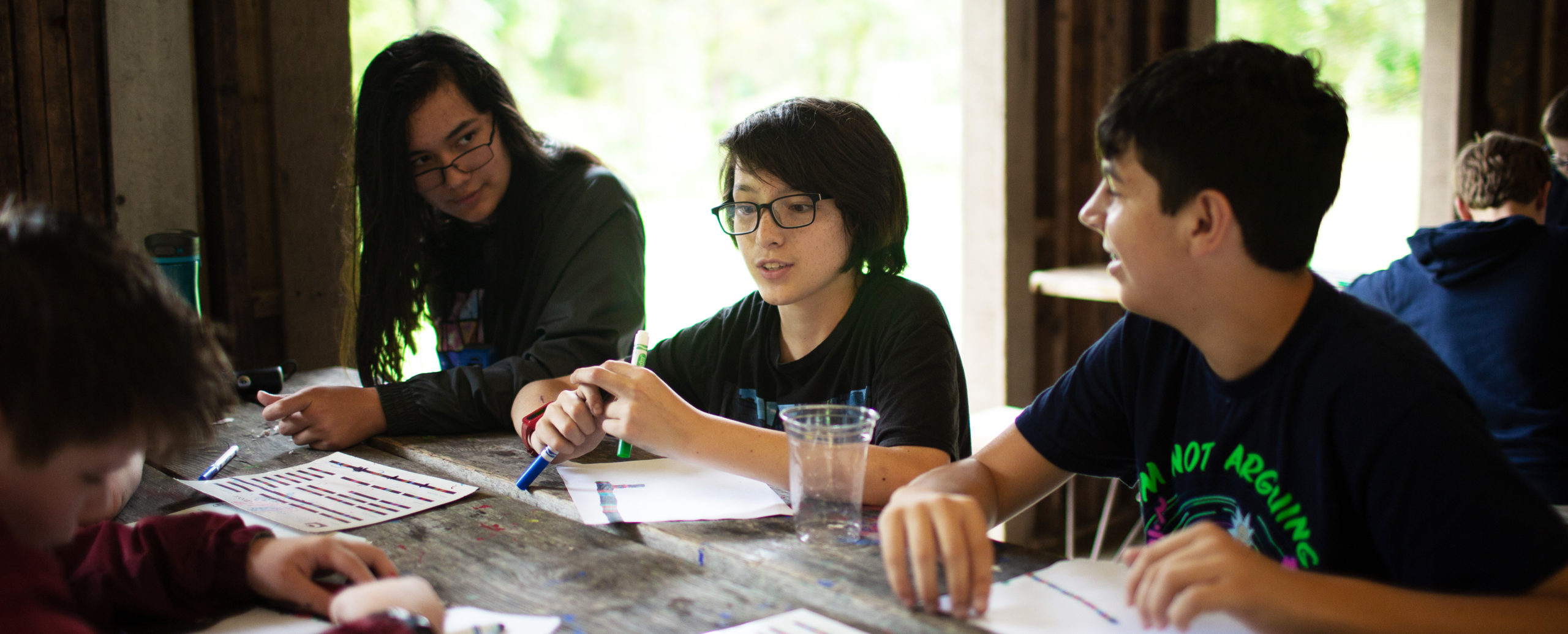

Introduction
In the realm of education, catering to the diverse needs of students is an ongoing challenge. The MESH curriculum, which stands for Mindsets, Essential Skills, and Habits, presents a comprehensive and inclusive approach to education that is particularly beneficial for neurodivergent learners. Sadly, when public schools are driven by standardized test scores, teacher shortages etc. Sometimes the essential MESH skills can fall by the wayside. Camp Sequoia works with licensed educators, clinicians and professionals to infuse this curriculum into the fabric of our camp day to support and empower neurodivergent students.
Mindsets: Shaping Positive Attitudes Towards Learning
The Mindsets component of the MESH curriculum emphasizes fostering positive attitudes toward learning. For neurodivergent learners, cultivating a growth mindset is crucial. Neurodivergent individuals may face unique challenges in their learning journey, and a growth mindset encourages them to view challenges as opportunities for growth rather than insurmountable obstacles.
According to Dweck (2006), a growth mindset involves recognizing that intelligence and abilities can be developed through dedication and hard work. Implementing this mindset in the MESH curriculum helps neurodivergent learners build resilience and confidence, contributing to a more positive learning experience.
Essential Skills: Tailoring Education to Individual Needs
The Essential Skills component recognizes the importance of tailoring education to meet the individual needs of students. Neurodivergent learners often have specific learning styles, strengths, and challenges. The MESH curriculum advocates for a differentiated and personalized approach to teaching, allowing educators to adapt their methods to accommodate diverse learning profiles.
For example, neurodivergent students may benefit from alternative forms of assessment, extended time on assignments, or the incorporation of assistive technologies. The MESH curriculum encourages educators to identify and leverage the strengths of neurodivergent learners while providing targeted support for areas of difficulty.
Habits: Building a Foundation for Success
The Habits component of the MESH curriculum focuses on developing positive habits that contribute to academic success and personal growth. Neurodivergent learners may encounter difficulties with executive functions such as organization, time management, and task initiation. The MESH curriculum addresses these challenges by promoting the development of habits that enhance executive functioning skills.
Educational psychologist Peg Dawson emphasizes the importance of teaching executive skills to neurodivergent students (Dawson & Guare, 2010). The MESH curriculum incorporates strategies to build these skills, helping neurodivergent learners become more independent and effective in managing their academic responsibilities.
Individualized Support: A Key Tenet of the MESH Curriculum
One of the strengths of the MESH curriculum is its emphasis on individualized support. Recognizing that neurodivergent learners have diverse needs, the curriculum encourages educators to collaborate with support staff, parents, and specialists to create tailored learning plans.
Individualized education plans (IEPs) are a common tool in supporting neurodivergent students, and the MESH curriculum aligns with the principles of IEP development. By considering the unique strengths and challenges of each neurodivergent learner, educators can create a supportive and inclusive learning environment that maximizes the student’s potential.
Inclusive Classrooms: Fostering Neurodiversity Awareness
The MESH curriculum promotes the creation of inclusive classrooms that celebrate neurodiversity. Neurodivergent students often face social challenges, and fostering an environment of understanding and acceptance is crucial. The curriculum encourages educators to incorporate lessons on neurodiversity, promoting empathy and reducing stigma.
Including neurodivergent perspectives in classroom discussions and literature selections can help neurotypical students gain a better understanding of their neurodivergent peers. By creating a culture of acceptance, the MESH curriculum contributes to the development of social skills and a sense of belonging for neurodivergent learners.
Professional Development: Equipping Educators with the Tools They Need
Implementing the MESH curriculum effectively requires ongoing professional development for educators. Neurodivergent students benefit from educators who are knowledgeable about diverse learning styles and strategies. The MESH curriculum encourages schools and districts to invest in training programs that equip educators with the tools and knowledge needed to support neurodivergent learners effectively.
Professional development may include workshops on understanding neurodiversity, strategies for differentiating instruction, and the use of assistive technologies. By investing in the professional growth of educators, the MESH curriculum ensures that neurodivergent learners receive the high-quality support they need.
Conclusion
The MESH curriculum represents a holistic and inclusive approach to education that is well-suited for neurodivergent learners. By addressing the mindsets, essential skills, and habits necessary for success, the curriculum provides a framework that can be adapted to meet the unique needs of neurodivergent students.
In a world where neurodiversity is increasingly recognized and celebrated, the MESH curriculum stands as a valuable tool for educators striving to create inclusive learning environments. By fostering positive attitudes toward learning, tailoring education to individual needs, building habits for success, providing individualized support, promoting neurodiversity awareness, and investing in professional development, the MESH curriculum is well aligned with the mission, vision and approaches of Camp Sequoia.
